- Home
- Linda Lael Miller
Megan Page 2
Megan Read online
Page 2
“I’d like to know that myself,” Caney put in, keeping pace. Her beautiful dark brown eyes had narrowed slightly.
So Skye had kept her promise, Megan thought, and never divulged her whereabouts. Perhaps she hadn’t even told the family she was receiving an occasional letter from the McQuarry-gone-astray.
“Just about everywhere,” Megan admitted, longing for sleep and tea and a nice, hot bath. Tears of happiness slipped down her cheeks as she reached the children and knelt before them, heedless of her skirts. They studied her curiously, Joseph his father in miniature, Margaret a re-creation of Christy, with a chubby forefinger caught in her mouth. “I’m your Aunt Megan,” she said.
Joseph put out his hand in solemn greeting, small as he was, and Megan shook it. Margaret clung to her brother’s shirt and edged shyly backward, out of reach.
Megan smiled and got to her feet.
Christy slipped an arm around her waist, and they entered the cool, fragrant interior of the house. It was full of light, and the floors shone with wax. Curtains danced at the open windows, and framed watercolors, probably Christy’s own work, graced the walls. Hard to believe it was the same place, Megan thought, where they’d made their meals in a fire pit and slept on bales of hay shoved together for beds, those first weeks after their arrival at Primrose Creek several years before.
“I see you’ve met Webb Stratton,” Christy said, her tone a shade less genial as she went to the wood box next to the shining cookstove and began feeding the fire to heat water for tea. Suddenly, there was a snappish tension in the air, like the metallic charge that precedes a violent storm. Perhaps Skye hadn’t betrayed Megan’s confidences, but the family couldn’t help knowing that she’d done the unthinkable and sold a portion of the land. They would hold that against her, as they would the worry she had caused them.
“Yes,” Megan replied, with a half-hearted stab at dignity. She was unpinning her hat, removing it, setting it aside atop a sturdy pinewood table. No doubt Trace had built that piece of furniture, as he had many others, in his workshop across the creek. He and Bridget had made their home in a sprawling log house, and, at last report, they’d had four children, counting Noah, Bridget’s son by her first marriage.
Joseph and Margaret were hovering at a safe distance, watching Megan as though they expected her to turn a back flip or sprout wings and fly around the room. She smiled at them before taking a chair at the round oak table where the family took their meals.
“Come along with Caney, now,” Caney said, gathering the children and shooing them toward one of the bedrooms. “Last time I looked, you two had left your toys scattered from here to kingdom come.” No fool, Caney. She’d probably sensed the shift in the emotional weather even before Christy and Megan had.
“We were surprised,” Christy said, with a false brightness that was all too familiar to Megan, busying herself at the stove, “when you sold your share of the land to a complete stranger.”
Megan twisted her fingers together. “I’m sorry,” she said.
“Sorry,” Christy echoed. She stood in profile, high color in her cheeks, her spine straight as a store-bought hoe handle. “You’re sorry.”
Megan sighed. She had expected just such a reception, but that didn’t make the confrontation any easier. “Yes,” she said wearily.
Christy slammed the tea kettle down hard on the gleaming surface of her huge iron and chrome cookstove. “You might have written.”
Megan looked down at her hands, twisted together in her lap. “I did write,” she said, very quietly. “To Skye. I asked her not to tell you where I was.”
Christy paused, dabbed at her eyes with the hem of her blue-and-white checked apron. “Well, she certainly respected your wishes.” She straightened again and drew a deep breath in a typical bid to regain control of her emotions. “That’s something, I suppose.” She turned, at last, and faced her sister. “Oh, Megan, how could you? How could you leave us to worry like that?”
Megan let out her breath; until then, she hadn’t realized she was holding it. “I was ashamed,” she said.
Christy looked stunned, as though she’d expected any answer in the world save that one. “Ashamed?” she echoed, her brow knitted prettily above her charcoal eyes. “I don’t understand.”
Megan forced herself to hold her sister’s gaze, though she longed to look away. She could feel her face taking flame. “I was—I made a stupid mistake.”
Christy crossed the room, the tea-making paraphernalia forgotten in the kitchen, and sank into a chair facing Megan. Her eyes glimmered with tears. “Oh, Megan, surely you didn’t think anything you could have done—”
Megan swallowed hard. “There was a man,” she said, and just uttering the words was like coughing with sharp stones caught in her throat. “I met him not—not long after I joined that first theater troupe, in Virginia City.”
Christy reached across the tabletop and took one of Megan’s hands in both her own. In that instant, Megan knew she could have confided in her elder sister and found understanding, but the awareness had come too late. The damage was already done. “Go on,” she said, very softly.
“His name was—is—Davy Trent. He—well, I thought he was entirely another sort of man—like Zachary, or Trace, or Skye’s Jake—but I was wrong.”
Christy simply waited, though her grasp tightened slightly.
Megan sniffled, raised her chin. She had come this far. She would see this through. Make a fresh start, right here among these people who loved her even when she disappointed them. “I was such a fool.” Megan raised her free hand to her mouth for a long moment, then forced herself to go on. Christy was silent, pale. “He—he said we were going to be married. There was a ranch for sale—we were supposed to buy it, live there—”
“But?” Christy prompted.
“He cheated me. I sold the property here at Primrose Creek, and instead of making the down payment, like we’d planned, and going through with the wedding, Davy took the proceeds and lit out.” In her head, she paraphrased an old saying of her granddaddy’s. A fool and her money are soon parted.
Christy slid forward to the edge of her chair and gathered Megan into her arms, held her. “How terrible.”
“I wanted to come home then, but I was too embarrassed, and I didn’t have stage fare,” Megan went on when the brief embrace had ended. “I waited tables and scrubbed floors until I’d saved enough to leave.”
Christy sighed. “You should have wired us that you were in trouble,” she said. “Zachary and I would have come for you ourselves.”
Megan shook her head. Her eyes felt hot and dry; it would have been a relief to weep, but she couldn’t. “I’m here now,” she said.
“And you can make a brand-new start,” Christy said gently. She smoothed a stray tendril of hair back from Megan’s temple. “Everything will be all right, Megan.”
Megan’s throat felt thick, and she dared not attempt to say any more before she’d had time to compose herself. She simply nodded again.
Water from the tea kettle began to spill, sizzling, onto the stovetop, and both women ignored it. “Are you sure he’s gone for good?” Christy pressed. “This scoundrel who fleeced you, I mean? Maybe Zachary could find him, get back your money, at least—”
Megan gave a bitter chuckle, shook her head. “He’s long gone,” she said.
“No doubt that’s for the best,” Christy said, and got up briskly to finish brewing the tea.
“Tell me about Webb Stratton,” Megan heard herself say.
Christy was bustling busily about the kitchen. A pretty frown creased her forehead. “I don’t know much about him,” she said, with plain regret. “He’s from somewhere up north, Montana, I think, though he told Zachary he’d been drifting awhile before he settled here. And Trace says he knows more about ranching than most anybody else in the high country.” A sudden smile lit her face. “He’s unmarried, you know. Webb, I mean. He lives in that big house all by himself.”
&n
bsp; Megan knew exactly what Christy was thinking and gave her a narrow look. “I’m not interested,” she said.
Christy was undaunted. In fact, she acted as if Megan hadn’t spoken at all. “I guess if we had to part with any portion of Granddaddy’s land, it could have gone to somebody a lot worse than Webb Stratton.”
Megan felt a slight but dizzying flip in the pit of her stomach every time she heard the man’s name. She stiffened a little, in an effort to brace herself against her own susceptibilities. “I asked him to sell the tract back to me,” she said. “He refused.”
“I’m not surprised,” Christy acknowledged. “He’s got a good two-story house and a fine barn built. Fences, too, and a well. He owns another thousand acres besides. Both Trace and Zachary agree that they wouldn’t sell out, either, if they were in his shoes.”
“They tried to buy the place?”
“No,” Christy allowed, bringing a tray to the table, “but they discussed the matter at some length, and on more than one occasion.” There were cookies and dried apricots on a china plate Megan remembered from their mother’s table, and the familiar flowered teapot steamed with the fragrance of orange pekoe. Megan went lightheaded for a moment, and her hand shook visibly as she reached for a piece of fruit.
Christy noticed immediately and poured tea for her sister. Then, while Megan was still grappling with the weakness her hunger had brought on, Christy returned to the pantry and fetched cheese, bread, and fresh butter. Mercifully, she left Megan to eat in peace, laying a hand lightly on her shoulder as she passed, and went to prepare a bath and a bed.
Megan ate as much as she dared and allowed herself to be led into the spare bedroom, where Caney and Christy gently divested her of her clothes and helped her into a copper tub filled with warm water. She was silent while Caney washed her hair and Christy laid out towels, scented powder, and a clean nightgown.
After the bath, Megan dried herself, used a generous amount of talcum, pulled on the gown, and crawled between blissfully clean linen sheets. For the first time in almost two years, she slept soundly, and without fear.
*
All the McQuarry women were beautiful, Webb reminded himself that afternoon while he worked, sweating under a shirt, buckskin breeches, and a heavy leather apron, at the forge behind his barn. To his way of thinking, it shouldn’t have surprised him to find out that Megan, with her coppery hair and clover-green eyes, surpassed them all.
He threw more wood onto the fire and worked the bellows with hard pumping motions of both arms. Shoeing horses, herding and branding cattle, riding fence lines, pitching hay—all of it was hard work, and Webb reveled in it. At night, when he stretched out on that narrow bed of his and closed his eyes, he sank to a place in his mind where neither dreams nor nightmares could reach, and as soon as he woke up, the whole cycle began all over again.
He frowned as he thrust a hard metal shoe into the fire with pinchers and held it steady while it softened enough to yield to hammer blows on the anvil. Megan McQuarry had staked out a place in his thoughts and commenced to homesteading there, it seemed, for he couldn’t seem to stop imagining the scent of her skin, the spirited light in her eyes, the inviting slender shape of her body. Until that morning, in town, she’d been a name on a deed to him and nothing more, but now that he’d met her, seen how proud she was, heard her talk about the plays she’d been in and the places she’d traveled, he’d gotten a real sense of her intelligence, her dignity, and the innate strength he suspected she didn’t even know she had. He’d sat there beside her, on the seat of his buckboard, just listening, his thigh touching hers, and, well, something had changed.
He wrenched the shoe from the fire, laid it on the anvil, and began to strike it hard, metal ringing against metal. On and on he worked, firing and refiring, hammering and rehammering, until the shape suited. Occasionally, he thrust the shoe into a vat of water and blinked in the hissing cloud of steam that arose around him like a veil.
He was holding the pinto mare’s right rear hoof in one hand and nailing a shoe into place with the other when Trace Qualtrough rode up on his newest acquisition, a dapple-gray stallion he’d bought off a horse trader down south someplace, and swung down from the saddle.
“Stratton,” he said, by way of a greeting, tugging at the brim of his beat-up leather hat. A man as prosperous as Trace could have afforded any kind of hat he happened to fancy, but he seemed partial to that one—in all the time he’d known him, Webb had never seen his neighbor wear another.
Webb nodded. “Afternoon,” he said. He knew what the visit was about—he and Trace were good friends, but they were also busy men, not much given to chin-wagging sessions in the middle of the day—so there was no need to ask. Now that Megan was home from her travels, the McQuarry women and their assorted husbands would be wanting to buy back the land.
He finished driving in the last short nail, squatted to make sure the shoe wouldn’t throw off the mare’s balance, then straightened to his full height. He gave the pinto a swat on the flank, and she nickered and trotted off to find herself a patch of good grass.
“We’ll give you a fair price,” Trace said. He wasn’t one to make a short story long, and that was one of the things Webb liked about him.
He shook his head. “I mean to stay right here,” he said.
Trace took in the sturdy log house, the grass and timber, the cattle and horses grazing nearby. “I don’t reckon I can blame you,” he replied with a sigh of resignation. “Had to try, though.”
Webb nodded. He knew all about trying, even when the odds were bad. Most westerners did.
“Bridget wants you to come to supper tomorrow night,” Trace went on. “It’s a celebration, ’cause Megan’s home.”
Webb knew he should refuse—common sense told him he ought to keep his distance from the redheaded Miss McQuarry, at least until he could get his impulses under control—but a neighbor’s hospitality was something to be respected, and, anyway, he relished the prospect of woman-cooked food and some polite company. “I’d be pleased to pay a visit,” he said.
Trace nodded. “She’ll be setting the table about the time the evening chores are done, I reckon,” he replied. Then he got back on his horse and, one hand raised briefly in farewell, rode away.
Webb watched him out of sight, then went down to the creek to wash. He’d get the stock fed early the next night and head into town for a real, hot-water bath upstairs at Diamond Lil’s. Might even get his hair barbered and put on his Sunday suit, he reflected, and grinned to himself. The McQuarrys weren’t the sort to give up easily, and if they couldn’t get the land back one way, they’d try another. He wouldn’t have put it past Bridget, Christy, and Skye to throw him and Megan together at every opportunity, hoping there would be a marriage.
Kneeling on the rocky bank of Primrose Creek, he splashed his face with icy water, then the back of his neck, and while the effort washed away some of the sweat and soot, it did nothing to cool the swift heat that had risen like a tide in his blood. He sure as hell wasn’t going to marry into that outfit—he liked his women a little less opinionated—but the idea of sharing a bed with Megan McQuarry possessed him like a demon fever.
He took off his apron and shirt, drenched his chest, back, and arms with more water. Maybe he shouldn’t have been so quick to accept Trace’s invite to supper, he reflected, but since the deed was done, he couldn’t see dwelling on regrets. He stood, snatched up his discarded clothing, and turned to head for the house.
The place was big but sparsely furnished, and entering the kitchen by way of the side door, Webb was struck yet again by the emptiness of the place. He hoped to marry one day and fill the rooms with kids, but for the moment he had to be content with his own company and that of his big yellow dog, Augustus. He still thought of his brother’s wife, Eleanor, more often than he’d like, and of the children she might have given him, but she was up in Montana on the Stratton family ranch, the Southern Star, and she was likely to stay there.
<
br /> He poured himself a cup of lukewarm coffee, stewing on the back of the stove since breakfast, took a sip, and winced. He wondered what kind of cook Megan McQuarry was, and then chuckled. Somehow, he couldn’t picture her brewing coffee, let alone frying up a chicken or stirring a pot of oatmeal. Something had taken the starch right out of her—that was plain from her countenance and the bruised expression in her eyes—but like as not, she wouldn’t stay at Primrose Creek for long, once she got her wind back. She wasn’t the sort to settle down in one place; as soon as a troupe of show people passed within fifty miles, she’d take to the trail.
Webb’s good spirits faded a little. He tossed the coffee into the cast-iron sink with a grimace of disgust and headed for the inside stairway.
His room, one of three sizable chambers, had a fireplace for cold nights, but the bed was nothing more than a cot, like the ones out in the bunkhouse, dragged up close to the hearth and covered with rumpled sheets and an old quilt. Just looking at it deepened his loneliness; he’d have to put in five or six more hours of work if he expected to sleep that night. There was always whiskey, of course, not to mention the friendly women who worked at Lil’s, but he was in no mood for either, damn the luck.
He changed his clothes, went back out to the barn, and began the process of mucking out stalls with a pitchfork. By the time he finished, the sun had set. He entered the house again, dished up some of the beans he’d been working on for several days, and made himself eat. Then, figuring the grub had run its course, he carried the kettle outside and scraped the contents into a blue enamel dishpan with rusted edges.
Augustus meandered over to lap up his supper, and Webb smiled, patting the animal’s hairy head. Bad planning on his part, he thought. The dog would have to sleep in the barn.
Chapter
2
Megan awoke with the first twittering of the birds and took a few moments to orient herself to her surroundings. She was home, she thought, with relief—not sharing a bed in a second-rate hotel with two other actresses or freezing on a hard bench in the back of some shoddy saloon or show house. Not carrying trays in a dining hall or scouring a filthy floor on her hands and knees. She drew a deep breath of thin, pure high-country air and let it out slowly. She was home.

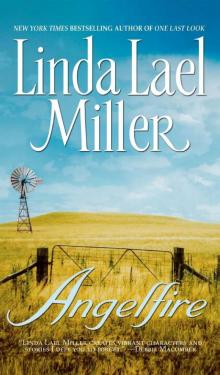 Angelfire
Angelfire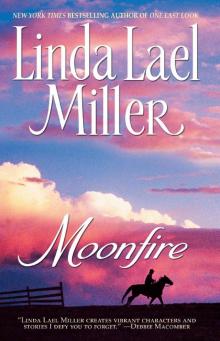 Moonfire
Moonfire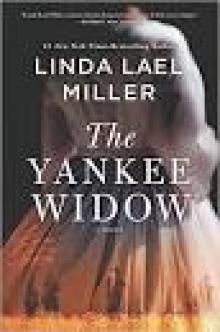 The Yankee Widow
The Yankee Widow The Cowboy Way
The Cowboy Way Country Strong--A Novel
Country Strong--A Novel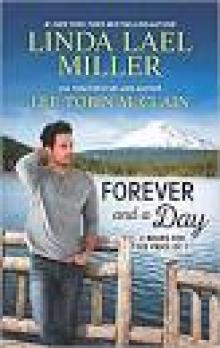 Forever and a Day
Forever and a Day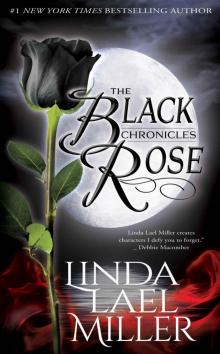 The Black Rose Chronicles
The Black Rose Chronicles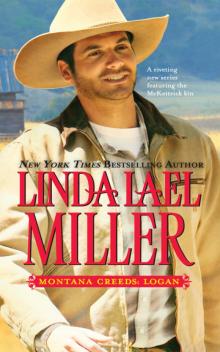 Montana Creeds: Logan
Montana Creeds: Logan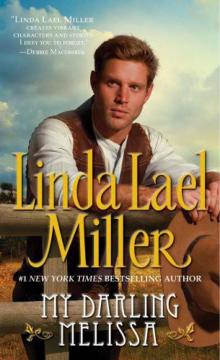 My Darling Melissa
My Darling Melissa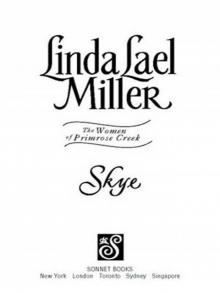 Skye
Skye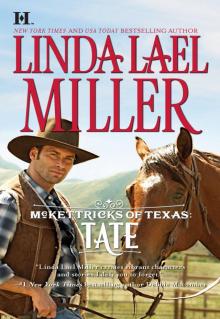 McKettricks of Texas: Tate
McKettricks of Texas: Tate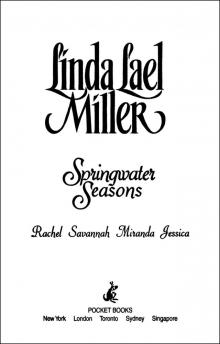 Springwater Seasons
Springwater Seasons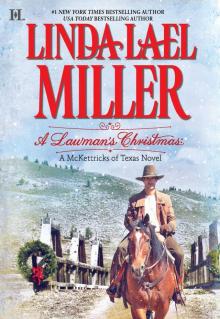 A Lawman's Christmas
A Lawman's Christmas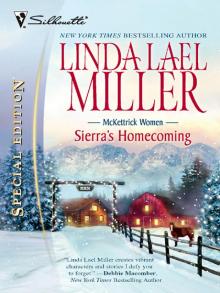 Sierra's Homecoming
Sierra's Homecoming![Parable, Montana [4] Big Sky Summer Read online](http://i1.bookreadfree.com/i/03/22/parable_montana_4_big_sky_summer_preview.jpg) Parable, Montana [4] Big Sky Summer
Parable, Montana [4] Big Sky Summer One Last Weekend
One Last Weekend A Stone Creek Collection, Volume 2
A Stone Creek Collection, Volume 2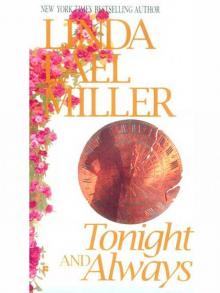 Tonight and Always
Tonight and Always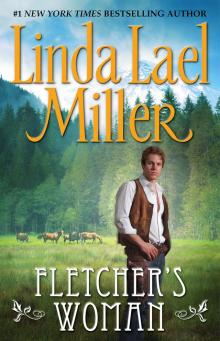 Fletcher's Woman
Fletcher's Woman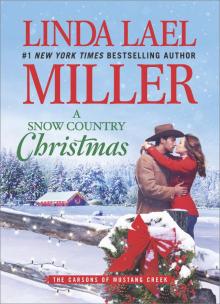 A Snow Country Christmas
A Snow Country Christmas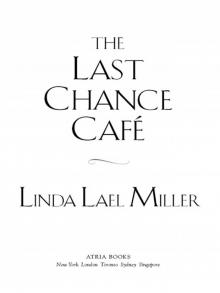 The Last Chance Cafe
The Last Chance Cafe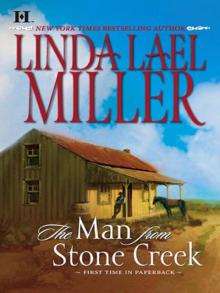 The Man from Stone Creek
The Man from Stone Creek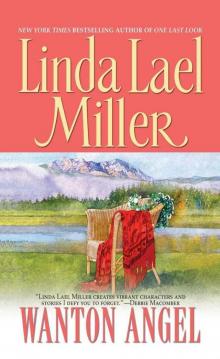 Wanton Angel
Wanton Angel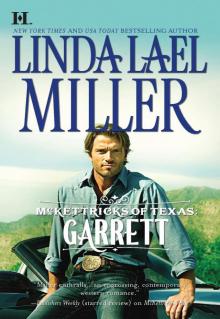 McKettricks of Texas: Garrett
McKettricks of Texas: Garrett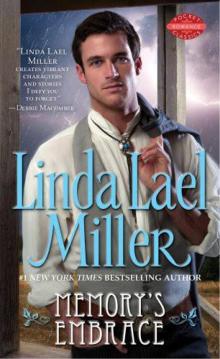 Memory's Embrace
Memory's Embrace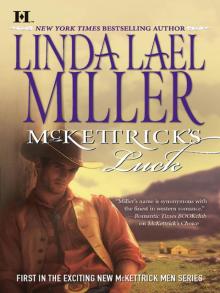 McKettrick's Luck
McKettrick's Luck Pirates
Pirates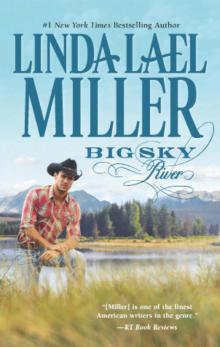 Big Sky River
Big Sky River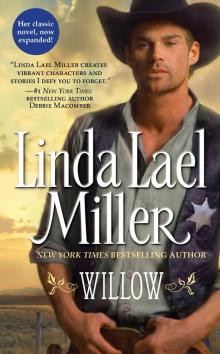 Willow: A Novel (No Series)
Willow: A Novel (No Series)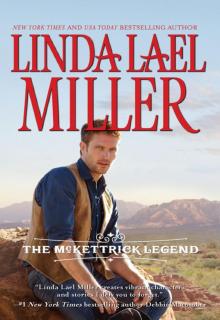 The McKettrick Legend: Sierra's HomecomingThe McKettrick Way (Hqn)
The McKettrick Legend: Sierra's HomecomingThe McKettrick Way (Hqn)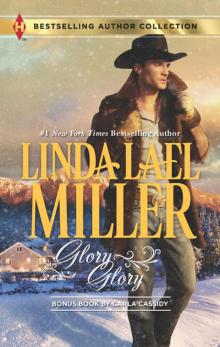 Glory, Glory: Snowbound with the Bodyguard
Glory, Glory: Snowbound with the Bodyguard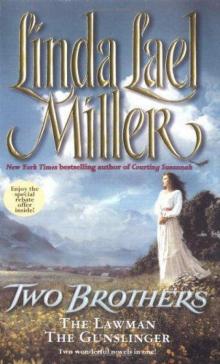 Two Brothers
Two Brothers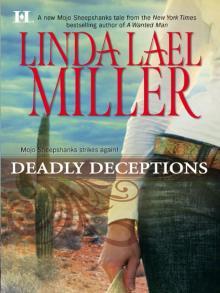 Deadly Deceptions
Deadly Deceptions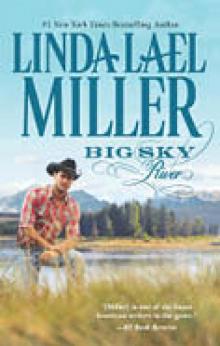 Big Sky Secrets
Big Sky Secrets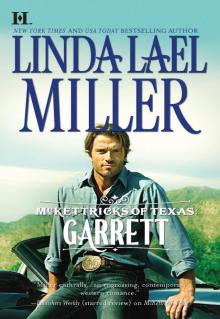 Garrett
Garrett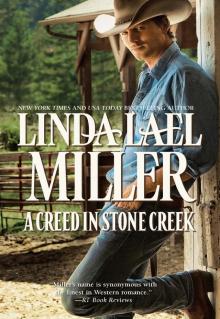 A Creed in Stone Creek
A Creed in Stone Creek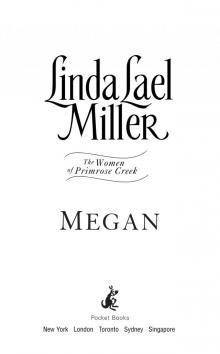 Megan
Megan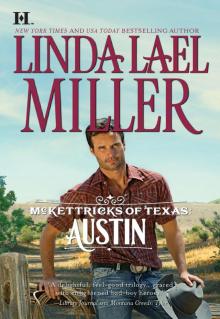 McKettricks of Texas: Austin
McKettricks of Texas: Austin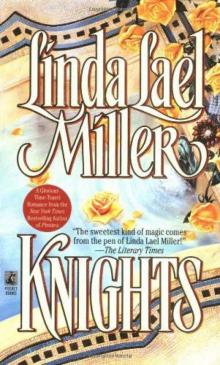 Knights
Knights High Country Bride
High Country Bride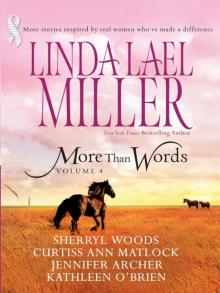 More Than Words Volume 4
More Than Words Volume 4 Glory, Glory
Glory, Glory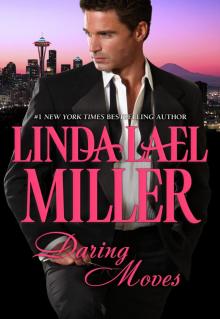 Daring Moves
Daring Moves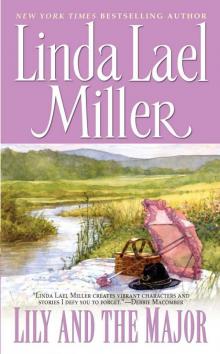 Lily and the Major
Lily and the Major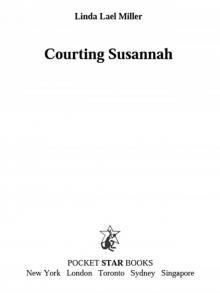 Courting Susannah
Courting Susannah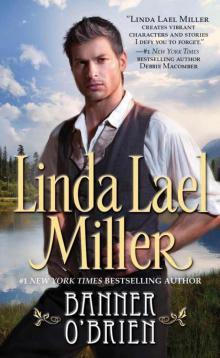 Banner O'Brien
Banner O'Brien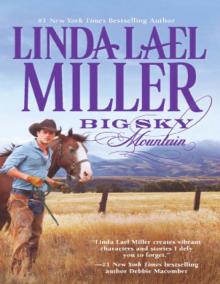 Big Sky Mountain
Big Sky Mountain Linda Lael Miller Bundle
Linda Lael Miller Bundle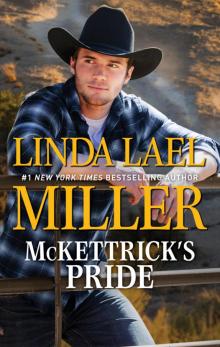 McKettrick's Pride
McKettrick's Pride A Stone Creek Collection Volume 1
A Stone Creek Collection Volume 1 A Wanted Man
A Wanted Man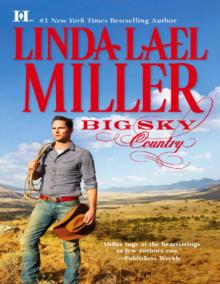 Big Sky Country
Big Sky Country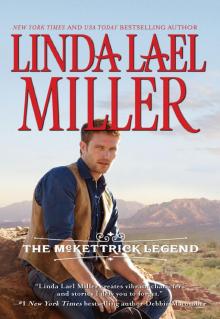 The McKettrick Legend
The McKettrick Legend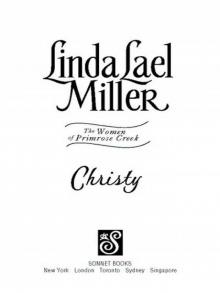 Christy
Christy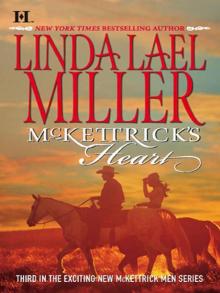 McKettrick's Heart
McKettrick's Heart Resurrection
Resurrection Arizona Heat
Arizona Heat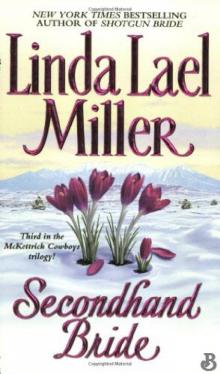 Secondhand Bride
Secondhand Bride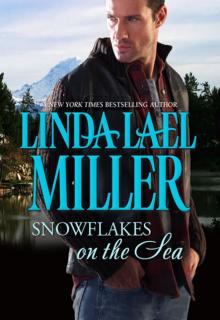 Snowflakes on the Sea
Snowflakes on the Sea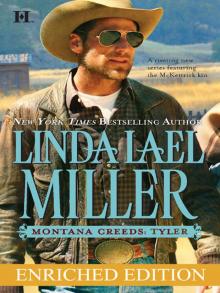 Montana Creeds: Tyler
Montana Creeds: Tyler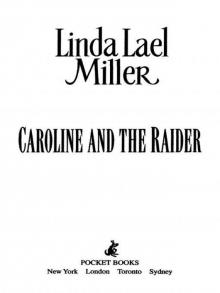 CAROLINE AND THE RAIDER
CAROLINE AND THE RAIDER A Proposal for Christmas: State SecretsThe Five Days of Christmas
A Proposal for Christmas: State SecretsThe Five Days of Christmas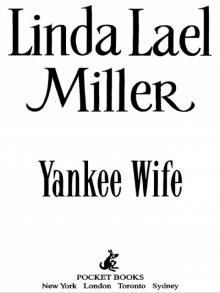 Yankee Wife
Yankee Wife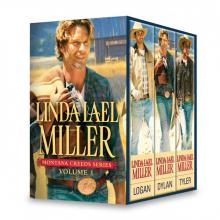 Linda Lael Miller Montana Creeds Series Volume 1: Montana Creeds: LoganMontana Creeds: DylanMontana Creeds: Tyler
Linda Lael Miller Montana Creeds Series Volume 1: Montana Creeds: LoganMontana Creeds: DylanMontana Creeds: Tyler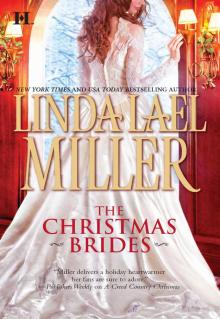 The Christmas Brides
The Christmas Brides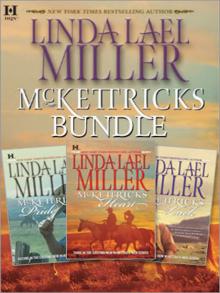 McKettricks Bundle
McKettricks Bundle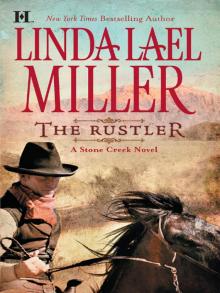 The Rustler
The Rustler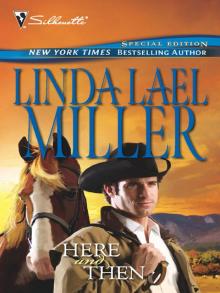 Here and Then
Here and Then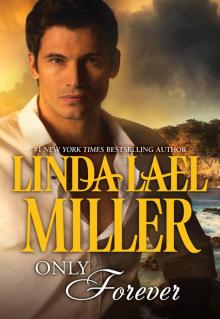 Only Forever
Only Forever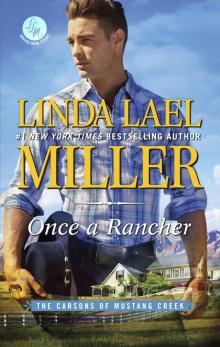 Once a Rancher
Once a Rancher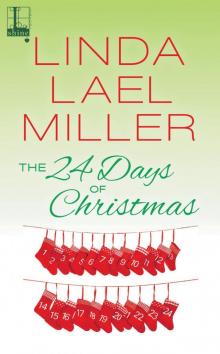 The 24 Days of Christmas
The 24 Days of Christmas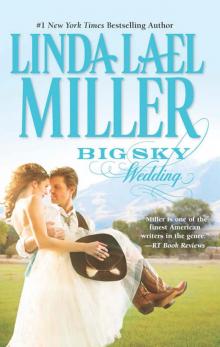 Big Sky Wedding
Big Sky Wedding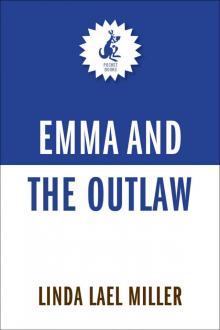 Emma and the Outlaw
Emma and the Outlaw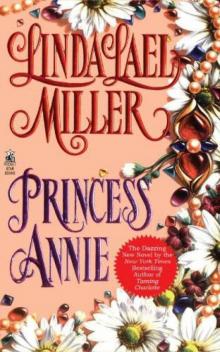 Princess Annie
Princess Annie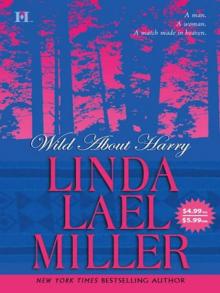 Wild About Harry
Wild About Harry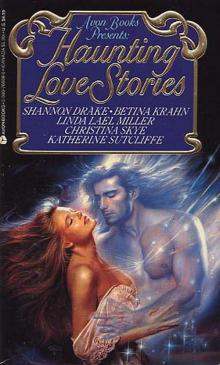 That Other Katherine
That Other Katherine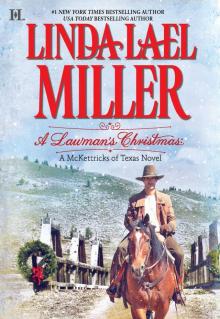 A Lawman's Christmas: A McKettricks of Texas Novel
A Lawman's Christmas: A McKettricks of Texas Novel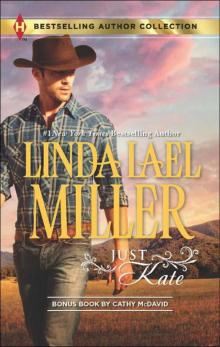 Just Kate: His Only Wife (Bestselling Author Collection)
Just Kate: His Only Wife (Bestselling Author Collection)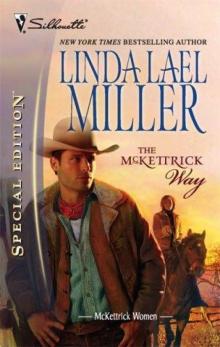 The McKettrick Way
The McKettrick Way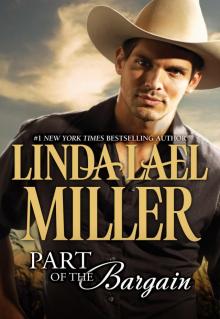 Part of the Bargain
Part of the Bargain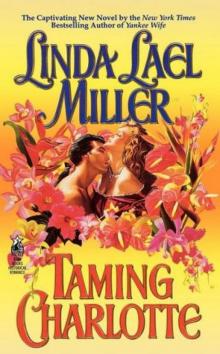 Taming Charlotte
Taming Charlotte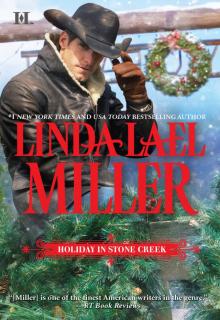 Holiday in Stone Creek
Holiday in Stone Creek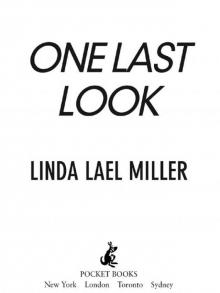 One Last Look
One Last Look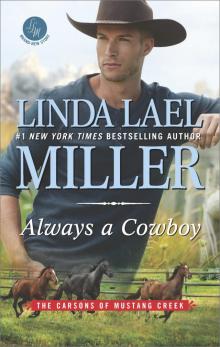 Always a Cowboy
Always a Cowboy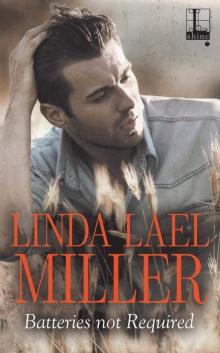 Batteries Not Required
Batteries Not Required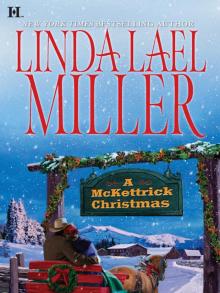 A McKettrick Christmas
A McKettrick Christmas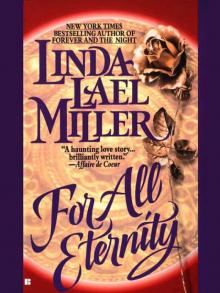 For All Eternity
For All Eternity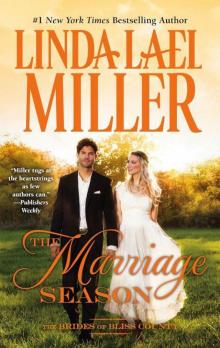 The Marriage Season
The Marriage Season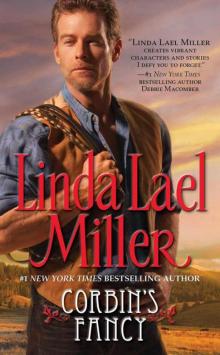 Corbin's Fancy
Corbin's Fancy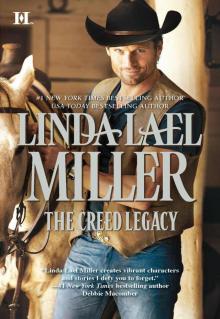 The Creed Legacy
The Creed Legacy Springwater Wedding
Springwater Wedding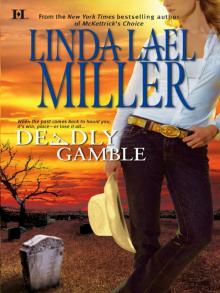 Deadly Gamble
Deadly Gamble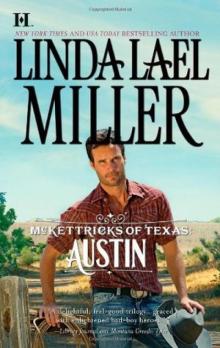 Austin
Austin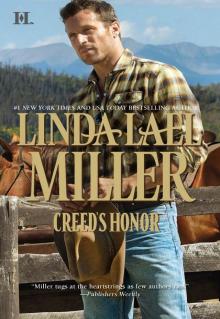 Creed's Honor
Creed's Honor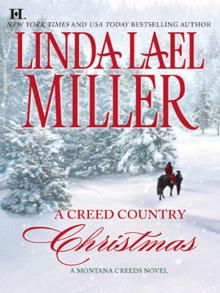 A Creed Country Christmas
A Creed Country Christmas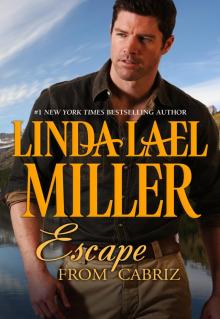 Escape from Cabriz
Escape from Cabriz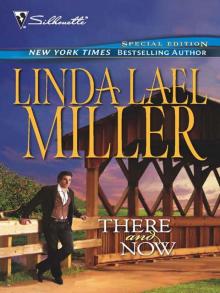 There and Now
There and Now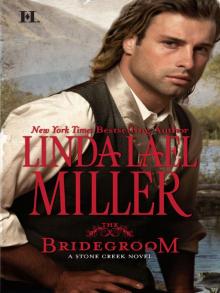 The Bridegroom
The Bridegroom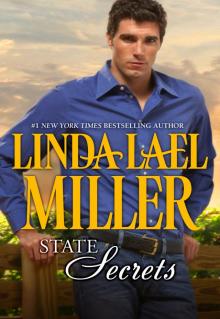 State Secrets
State Secrets Bridget
Bridget